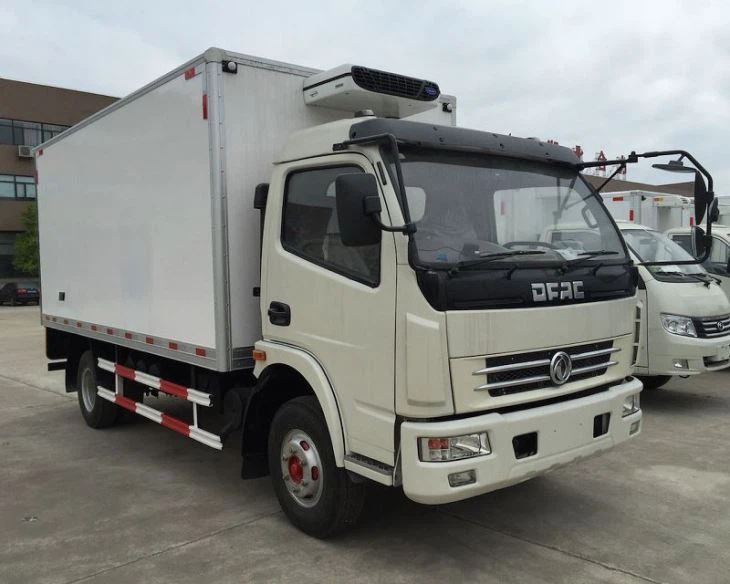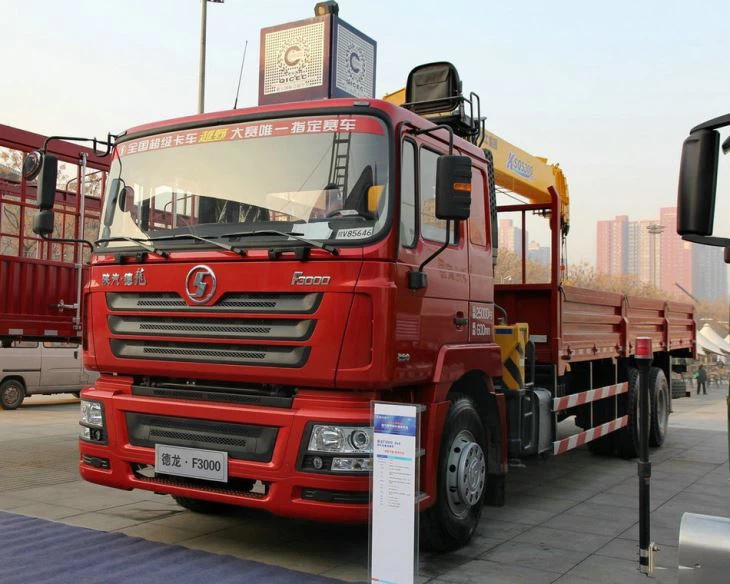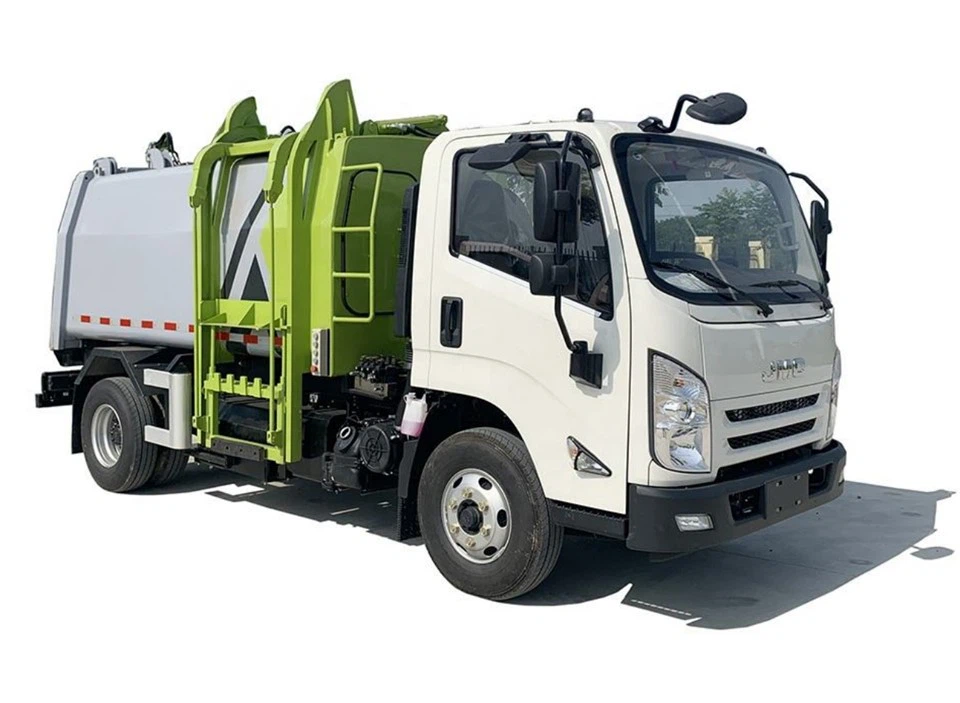Rolloff Trucks: A Comprehensive Guide for Waste Management and Construction

Introduction to Rolloff Trucks
Rolloff trucks are specialized vehicles designed for the efficient transport of large containers or bins used for waste disposal, recycling, and construction debris. Their unique design allows these trucks to quickly load and unload bins, making them a preferred choice for many businesses and contractors. In this article, we will explore the various aspects of rolloff trucks, including their types, uses, benefits, maintenance tips, and frequently asked questions to provide a complete understanding of these vital vehicles.
The Anatomy of a Rolloff Truck
What is a Rolloff Truck?
A rolloff truck is equipped with a hydraulic system that enables it to lift, transport, and drop off large containers, also known as rolloff dumpsters. These trucks come in various sizes and configurations to meet different needs in waste management and construction projects.

Key Components of Rolloff Trucks
- Chassis: The main structure that supports the truck’s components.
- Hydraulic System: Responsible for lifting and lowering the container.
- Dump Body: The part of the truck that holds the rolloff container.
- Container or Bin: The removable dumpster used for collecting waste.
Types of Rolloff Trucks
Standard Rolloff Trucks
Standard rolloff trucks are commonly used in waste management. They have a straightforward design and are capable of loading and unloading containers with ease.
Heavy-Duty Rolloff Trucks
Heavy-duty rolloff trucks are designed for more demanding tasks, such as transporting larger containers filled with construction debris or industrial waste. They have enhanced strength and durability to handle heavier loads.
Drop-Box Rolloff Trucks
Drop-box rolloff trucks are designed for specific applications, allowing bins to be dropped off in hard-to-reach areas. These trucks often have a smaller footprint and offer better maneuverability.
Uses of Rolloff Trucks
Construction & Renovation Projects
In construction, rolloff trucks are indispensable for removing debris, old materials, and waste from job sites. Their quick loading capabilities keep projects on schedule.
Waste Management Services
Many waste management companies rely on rolloff trucks for their efficiency in collecting and transporting large quantities of waste to landfills or recycling facilities.
Event Waste Disposal
Rolloff trucks are also used during large events, such as festivals and fairs, to manage waste and recyclables effectively. They can be placed strategically around the venue for convenient access.
Benefits of Using Rolloff Trucks
Efficiency in Waste Collection
The ability of rolloff trucks to quickly load and unload containers increases efficiency, allowing for more waste to be collected in less time.
Versatility
Rolloff trucks can accommodate various container sizes, making them suitable for different projects, from small renovations to large construction sites.
Cost-Effective Solution
Using rolloff trucks can reduce labor costs associated with waste disposal, as fewer personnel are needed to handle the loading and unloading process.
Choosing the Right Rolloff Truck for Your Needs
Assessing Project Requirements
Before selecting a rolloff truck, assess your project’s waste management requirements, including the volume of waste generated and the types of materials to be disposed of.
Container Sizes
Rolloff containers come in various sizes, commonly ranging from 10 to 40 yards. Choose a container that fits your needs to minimize extra trips and costs.
Provider Reputation
When renting a rolloff truck, it’s crucial to choose a reputable provider. Check reviews and referrals to ensure reliability and quality service.
Maintenance Tips for Rolloff Trucks
Regular Inspections
Frequent inspections of both the truck and the hydraulic system are essential to prevent breakdowns and ensure safe operations. Look for signs of wear and tear regularly.
Hydraulic System Care
Keep the hydraulic system well-maintained by regularly checking fluid levels and ensuring there are no leaks. Proper maintenance can extend the lifespan of the truck.
Tire Maintenance
Regularly check tire pressure and tread depth to ensure safe driving and optimal performance. Replacing worn tires is crucial for maintaining safety standards.
Challenges of Using Rolloff Trucks
Space Limitations
One of the primary challenges with rolloff trucks is finding adequate space to place containers, especially in urban areas or tight job sites.

Safety Concerns
Ensuring the safety of workers during the loading and unloading process is vital. Proper training and adherence to safety protocols is necessary to minimize accidents.
FAQs About Rolloff Trucks
What substances can be disposed of using rolloff trucks?
Rolloff trucks can transport various materials, including construction debris, household waste, and recyclable materials. However, hazardous waste must be handled separately.
How much weight can rolloff trucks carry?
The weight capacity of rolloff trucks varies by model, but most can handle between 10,000 to 30,000 pounds, depending on the truck and container size.
How do I rent a rolloff truck?
To rent a rolloff truck, contact waste management companies or equipment rental services in your area, and inquire about availability and pricing for the container and truck size you need.

Are rolloff trucks environmentally friendly?
Yes, rolloff trucks are often used in recycling programs, helping to manage waste sustainably. They play a crucial role in diverting waste from landfills.
What is the average cost of renting a rolloff truck?
The cost of renting a rolloff truck varies based on location, container size, and rental duration. Typically, prices range from $250 to $1000 per week.
Can I use a rolloff truck for residential projects?
Absolutely! Rolloff trucks are ideal for residential projects, especially during renovations or cleanouts, allowing homeowners to efficiently manage their waste.
Practical Examples of Rolloff Truck Usage
Case Study: Large Scale Renovation
A large home renovation project required multiple rolloff containers. The contractor rented three 20-yard rolloff trucks, enabling the team to efficiently dispose of debris and renovation materials without slowing down progress.
Case Study: Outdoor Festival Waste Management
During an annual music festival, organizers placed several 30-yard rolloff containers around the venue. This helped manage attendee waste effectively, ensuring the site remained clean throughout the event, and minimized cleanup time after the festival.
Tips for Efficient Rolloff Truck Usage
- Schedule drop-off and pick-up times to minimize delays and labor costs.
- Label containers clearly for different types of waste to streamline the disposal process.
- Consider buying rather than renting if you have ongoing needs – this can save money in the long run.
